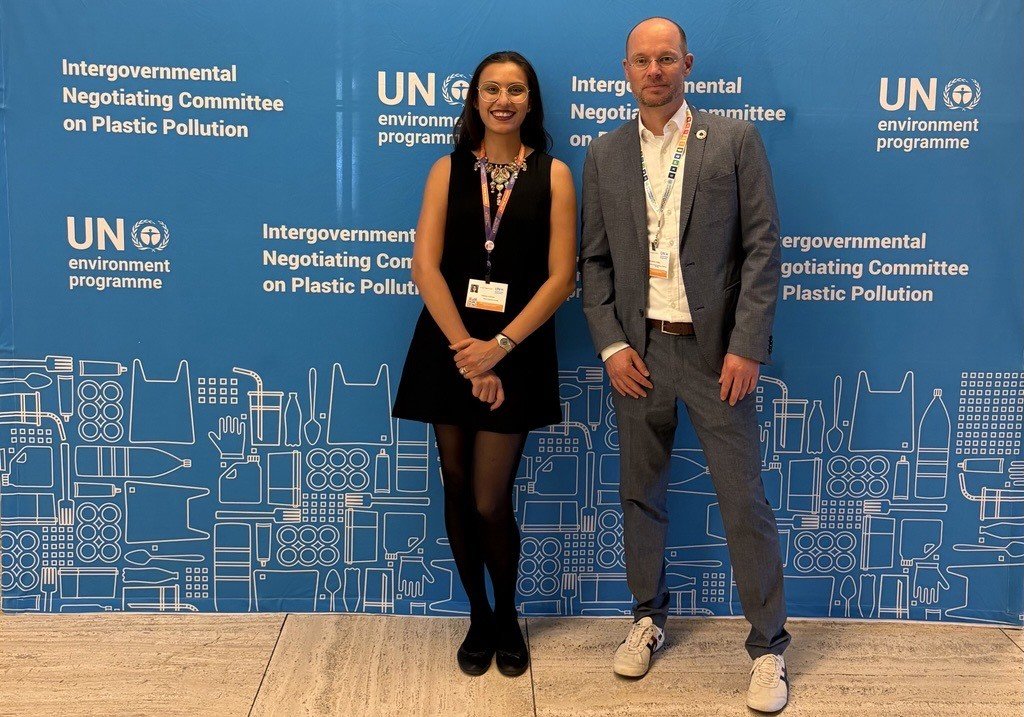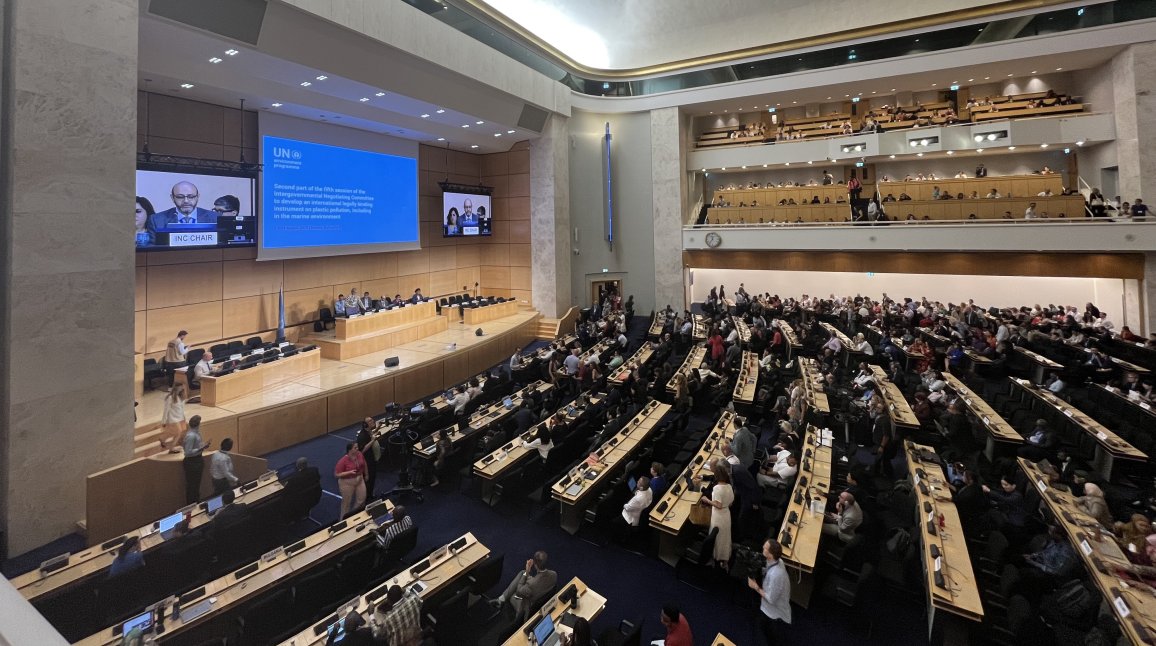'I think that we at ALPLA have more to win than to lose.'
From the beginning to mid-August, another round of United Nations negotiations on the so-called Plastic Treaty took place in Geneva, which was met with high expectations. We spoke with Volker Glöckner. Head of Public Affairs & Circular Economy at ALPLA and was on site together with the Business Coalition for a Global Plastics Treaty. He explains exactly what is at stake, what issues are causing controversy among the states, and why no result has been reached yet.

Volker Glöckner, Head of Public Affairs & Circular Economy, and Rahman Kaunain, Public Affairs and Circular Economy Expert bei ALPLA, were present in Geneva.
What exactly is the Plastic Treaty, and why is it so important for the plastics and packaging industry?
The UN Plastics Treaty is based on Resolution UNEA 5.14 and is short for the much longer title “To develop an international, legally binding instrument to end plastic pollution, including in the marine environment.” The title already says what it is mainly about: environmental pollution caused by plastic. For us as a leading international manufacturer of rigid plastic packaging, the treaty is of interest because it aims to establish legally binding rules to reduce environmental pollution caused by plastics – not just packaging. Possible measures range from bans on the production of single-use plastics to mandatory rules and quotas for design for recycling or the use of recycled materials. An internationally harmonized legal framework could enable economies of scale, remove barriers to innovation, and strengthen the competitiveness of the circular economy. An ambitious UN Plastics Treaty could thus become a booster for the circular economy of plastic packaging and, in turn, for ALPLA's business model.
What topics were the key focus in Geneva – bans on certain materials, reduction targets, recycling rates, or waste management?
The topics negotiated in the UN Plastics Treaty are diverse and include many things we are familiar with from European regulations such as the PPWR. They cover waste management and sorting, extended producer responsibility, design for recycling, but also topics such as “just transition” for the 20 million informal waste collectors without whom recycling would not be possible in many countries of the Global South. Another topic is how industrialized nations can support countries in the Global South financially and with expertise in implementation. The dominant topic and, at the same time, one of the biggest points of contention is the question of whether the production of plastic polymers must be limited in order to achieve the goal of the UN Plastics Treaty, which is to end environmental pollution.
Are there any specific proposals that would be particularly relevant to ALPLA or the packaging industry?
Our focus in the negotiations is on everything related to the circular economy and our plastic packaging. This includes, for example, bans on plastic products and so-called chemicals of concern, which make recycling difficult or impossible, as well as product design. Here, the main focus is on design for recycling, which we are naturally committed to.
Why have the negotiations so far failed to produce a binding result?
Anyone who knows how difficult it is to find common ground among the 27 member states of the EU can perhaps imagine how difficult it is among the 193 official UN member states. The most obvious reason is that oil-producing countries are opposed to limiting plastic production, while the countries of the so-called “High Ambition Coalition,” which includes the EU, insist on a limit or at least an article on “sustainable production and consumption.” If this conflict were resolved, the negotiations would take a big step forward.
What role do geopolitical and economic interests play in this deadlock?
The negotiations reflect the current geopolitical conflicts. Even though it is not as prominent this time as it was in the last negotiations, the conflict between Russia and the EU is still an issue. In addition, it is clear that a new political climate has emerged since Donald Trump's re-election as US president. Anything that could potentially harm the US economy or the status quo is categorically rejected, which has already caused considerable discontent among other member states.

Was there nevertheless some minor progress that can be built on?
I do think there was progress. For the first time ever, the various states and groups of states talked to each other and not just about each other. This was evident in the many informal negotiations behind closed doors, which took place mainly in the second week, sometimes lasting into the early hours of the morning.
What happens next? When are the next rounds of negotiations planned, and what could change between now and then?
EU is pushing for an INC 5.3, which could take place in spring. However, the mandate for the negotiations expires at the end of 2025. This would require the UN to extend the mandate and provide additional financial resources for the negotiations. What we are currently not seeing is a so-called “Treaty of the willing” outside the UN. This would amount to bilateral agreements between individual countries. Ultimately, premature failure is also possible.
What opportunities and risks arise for companies such as ALPLA if a global treaty is finally concluded?
I think that we at ALPLA have more to win than to lose. Internationally uniform regulations could significantly advance the circular economy of rigid plastic packaging worldwide. When you consider how much plastic packaging still ends up in landfills today, there is a lot of potential for improvement.
Do you like our texts? Perhaps even so much that you want to use them in your own media? Then please get in touch with us beforehand!
